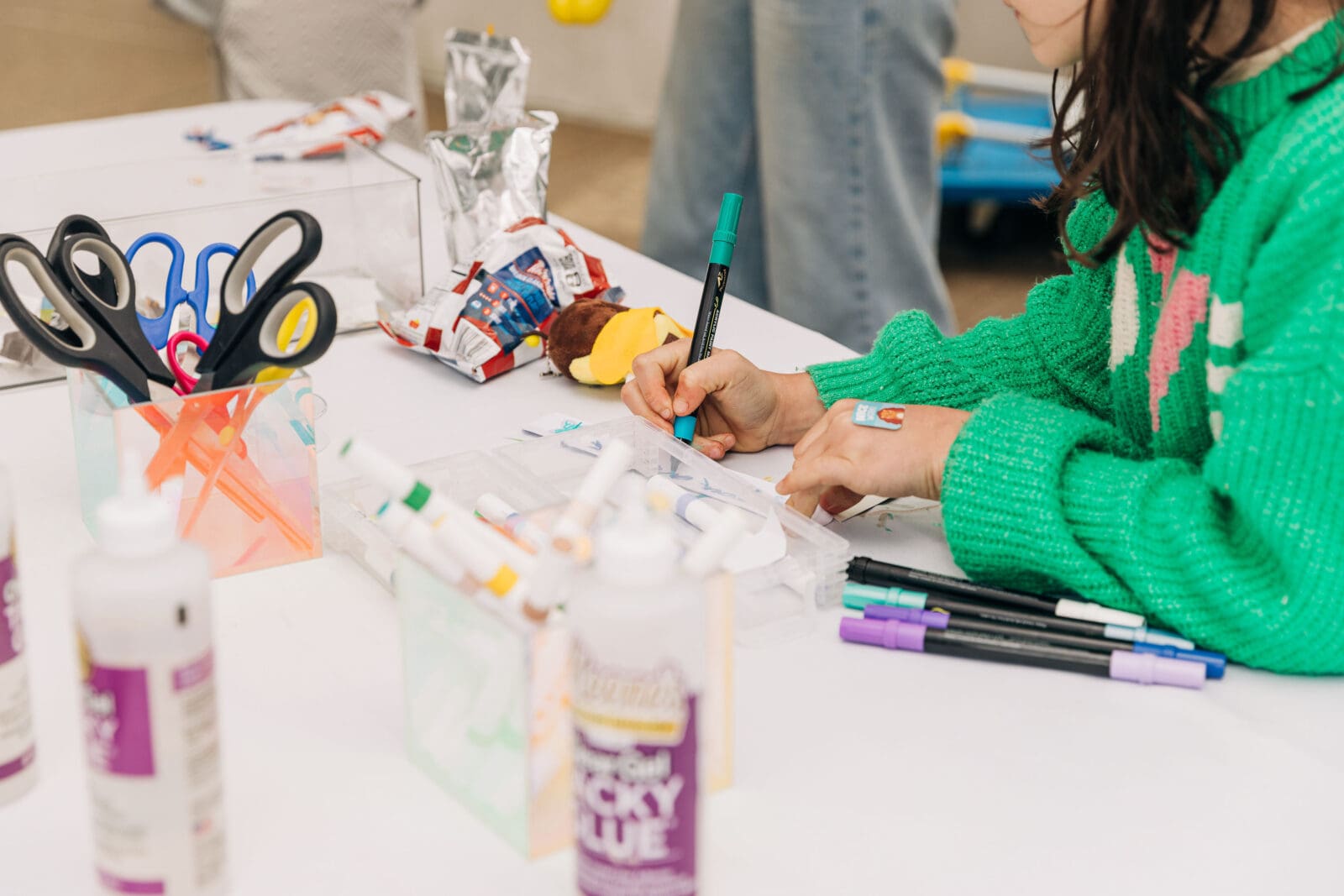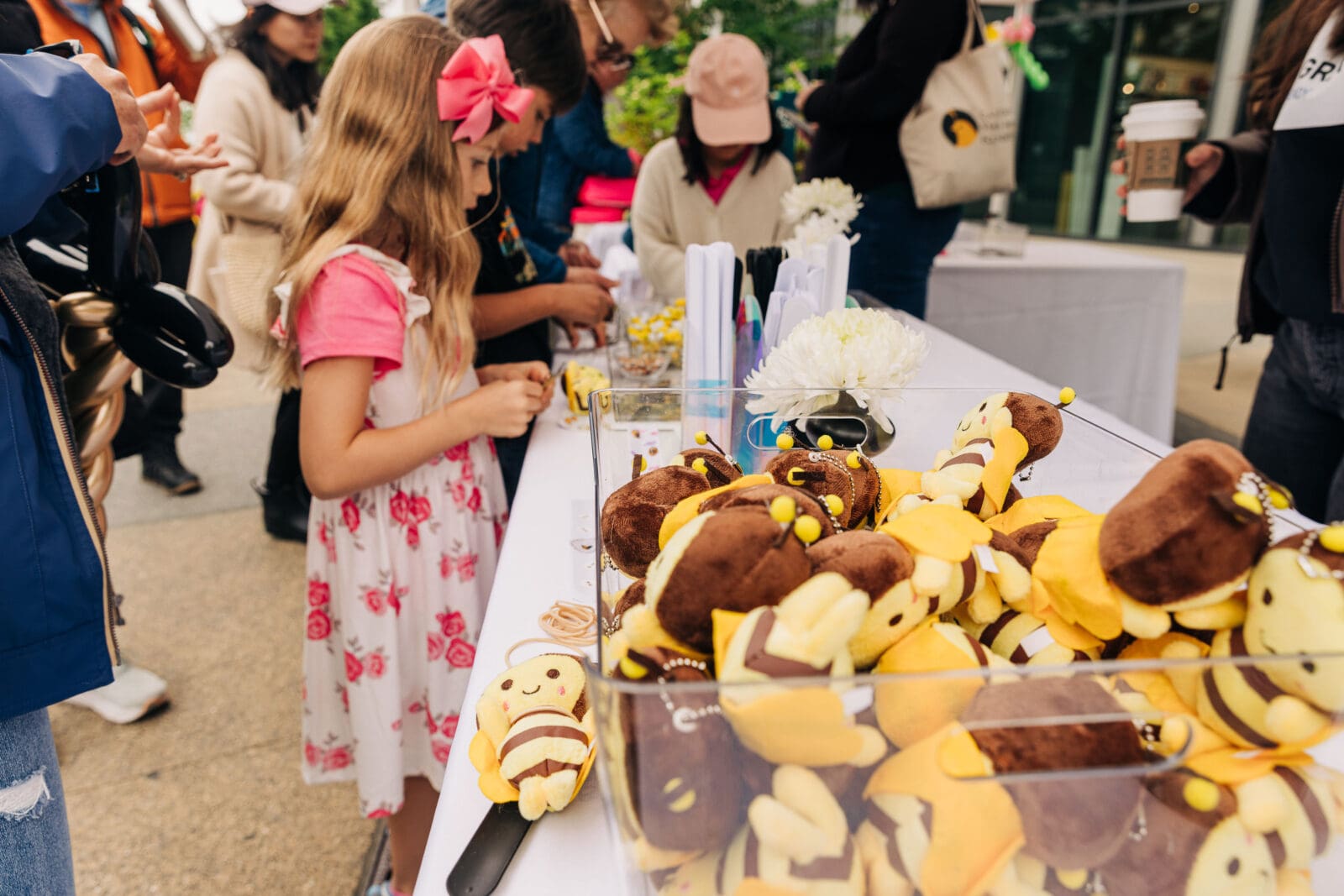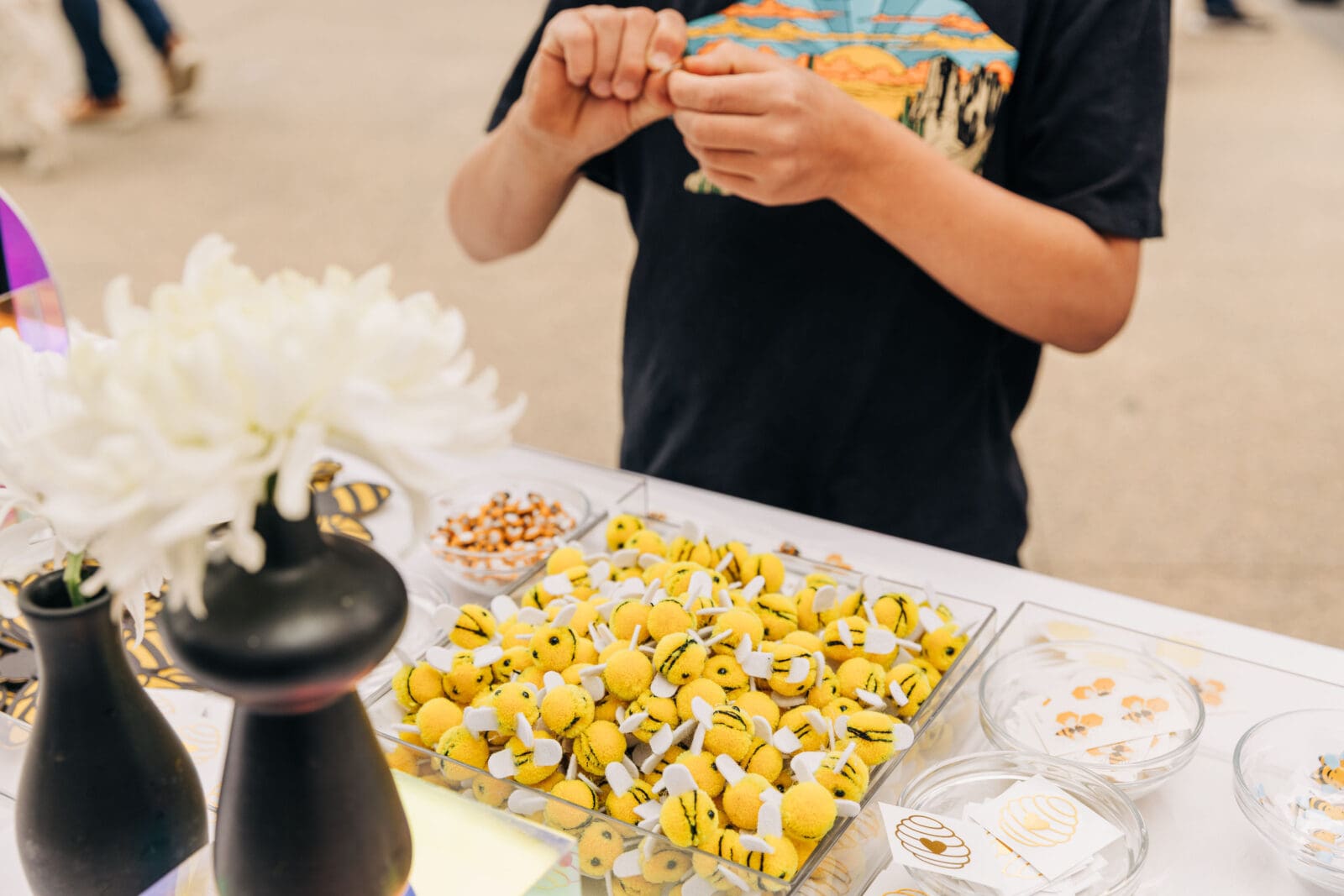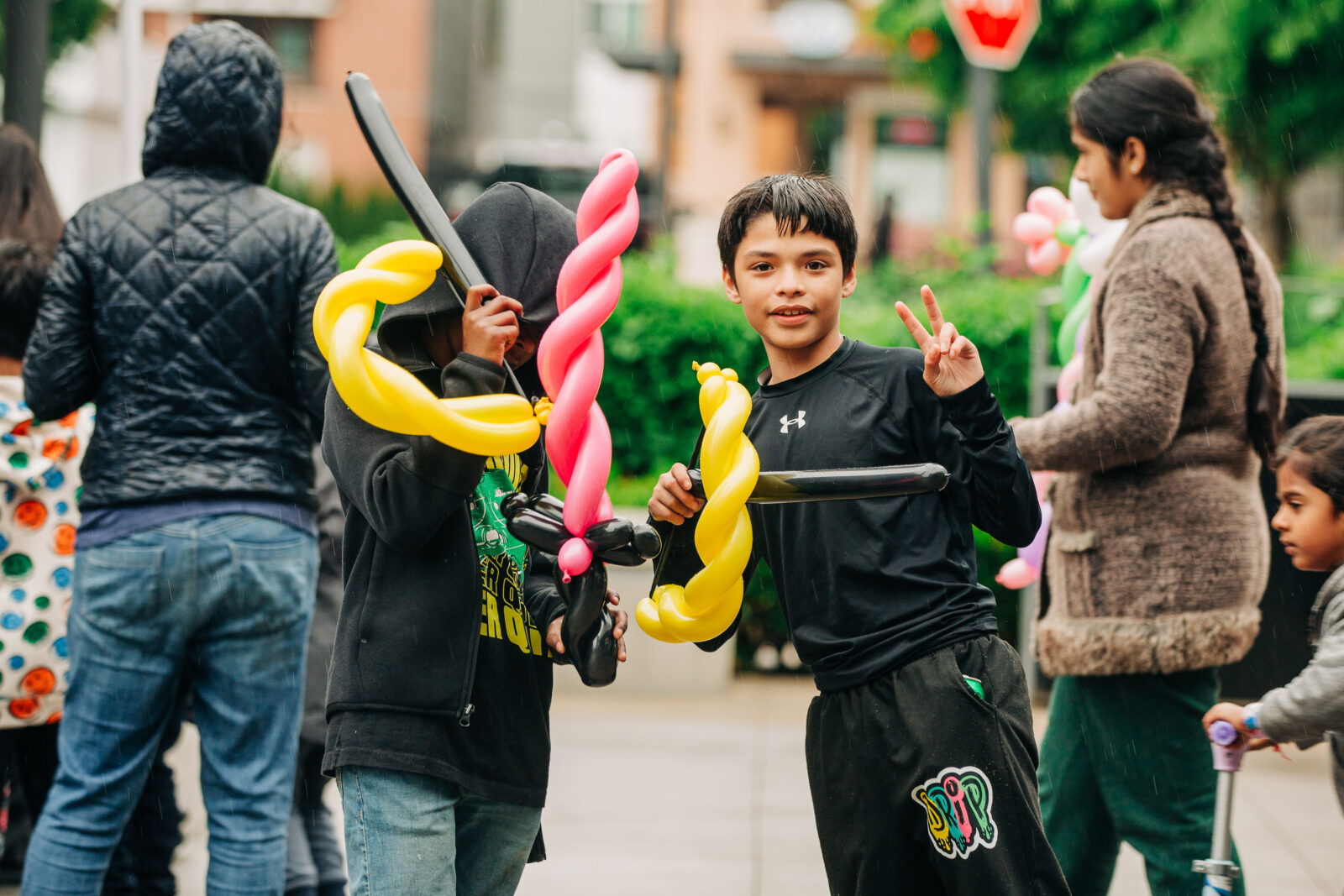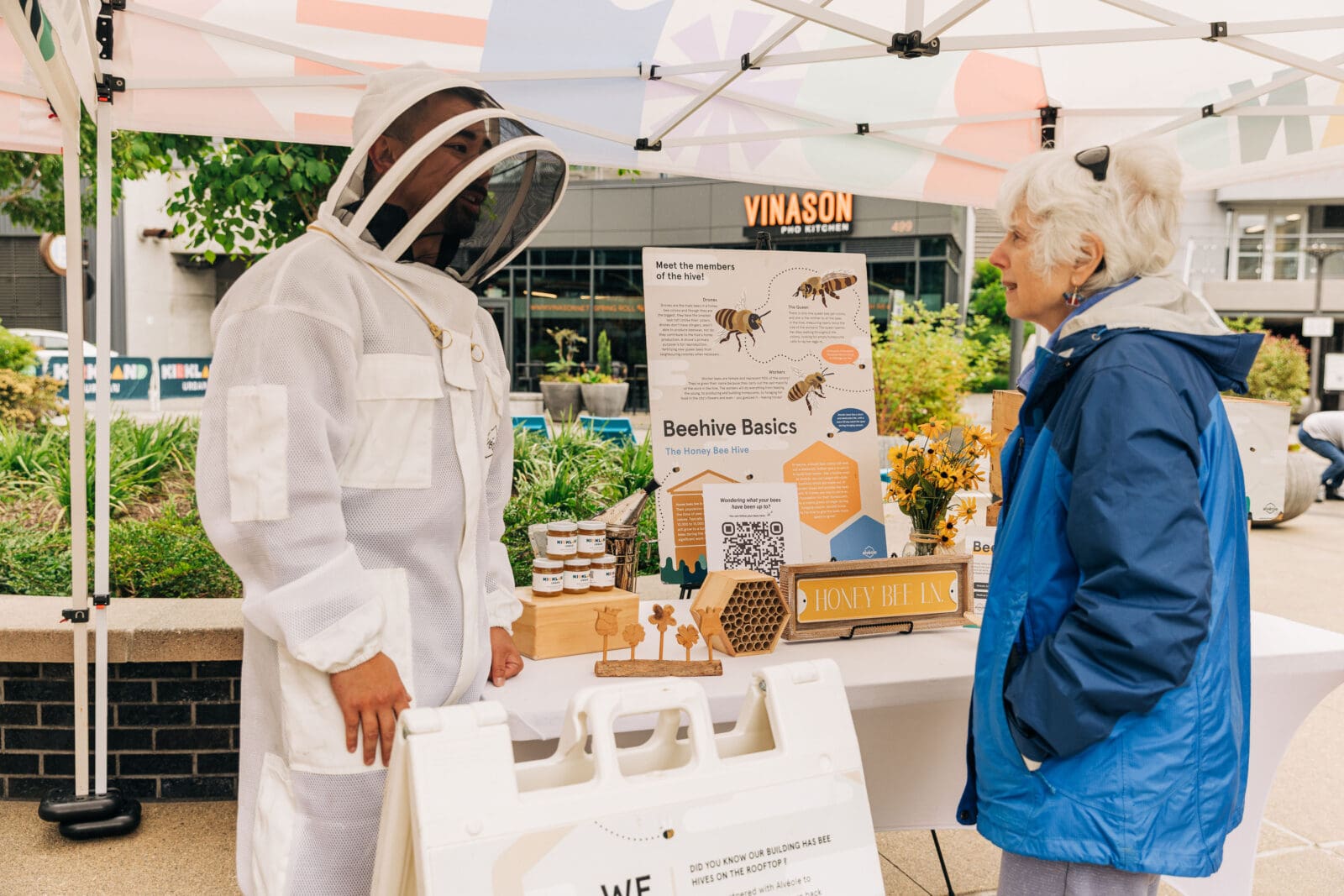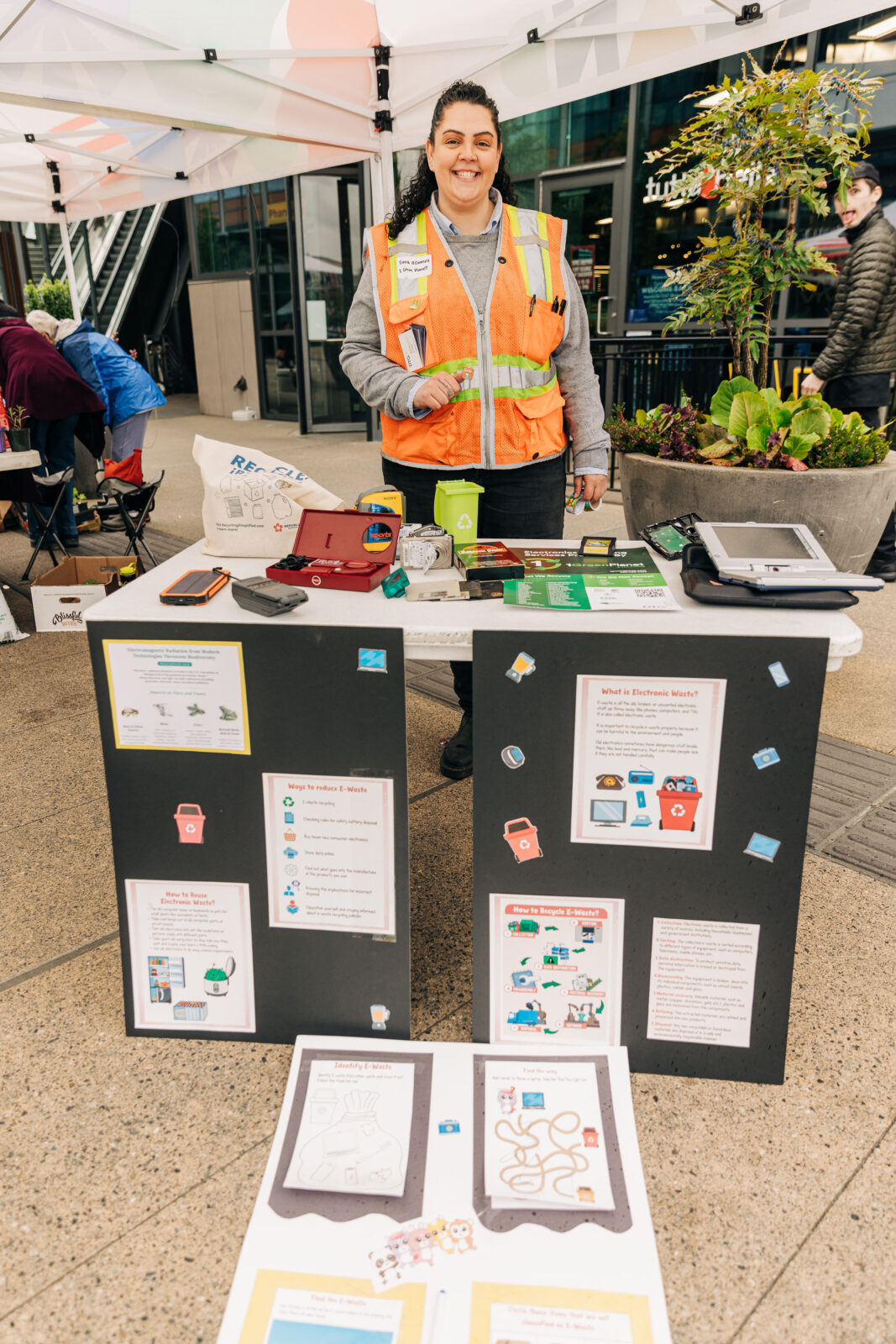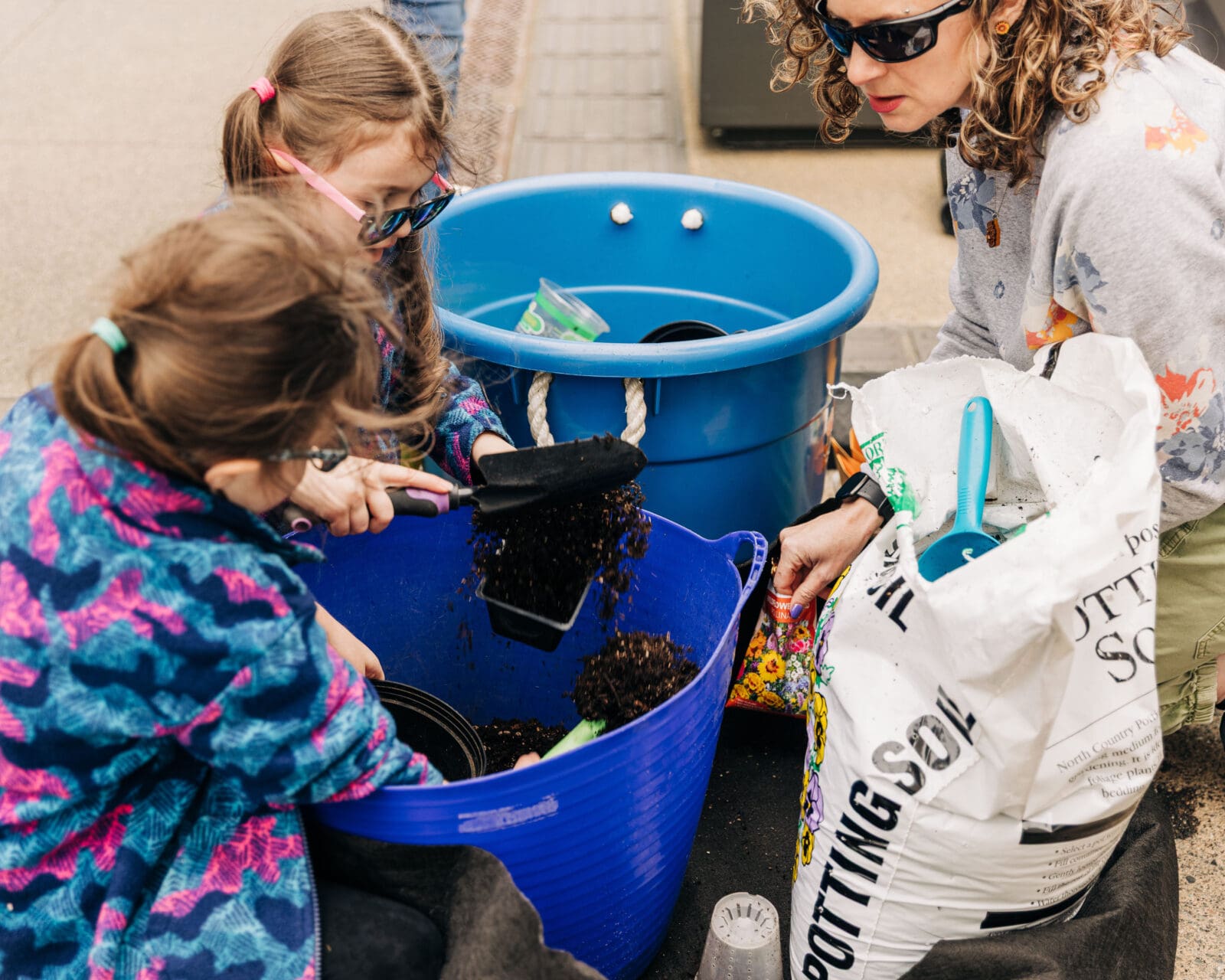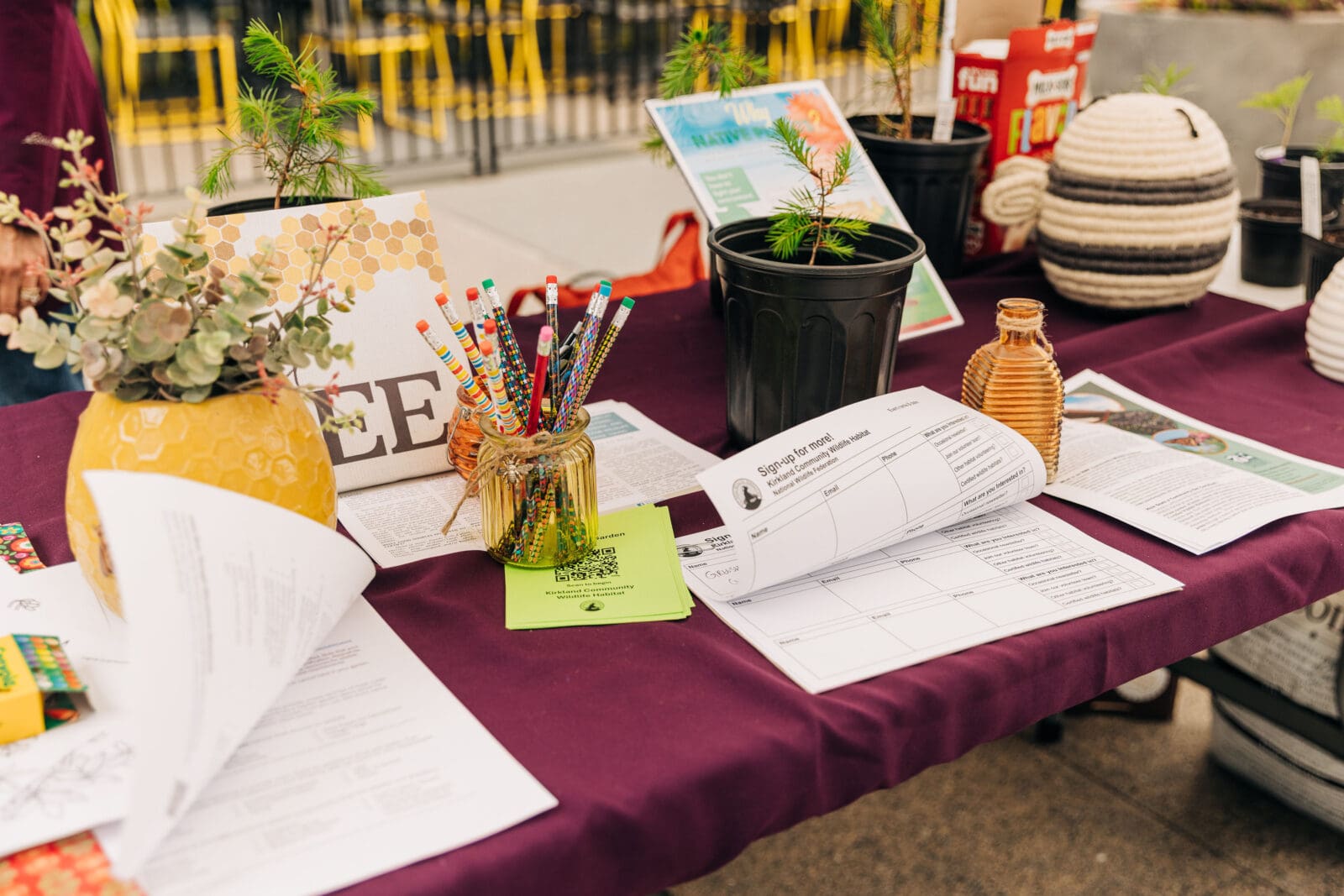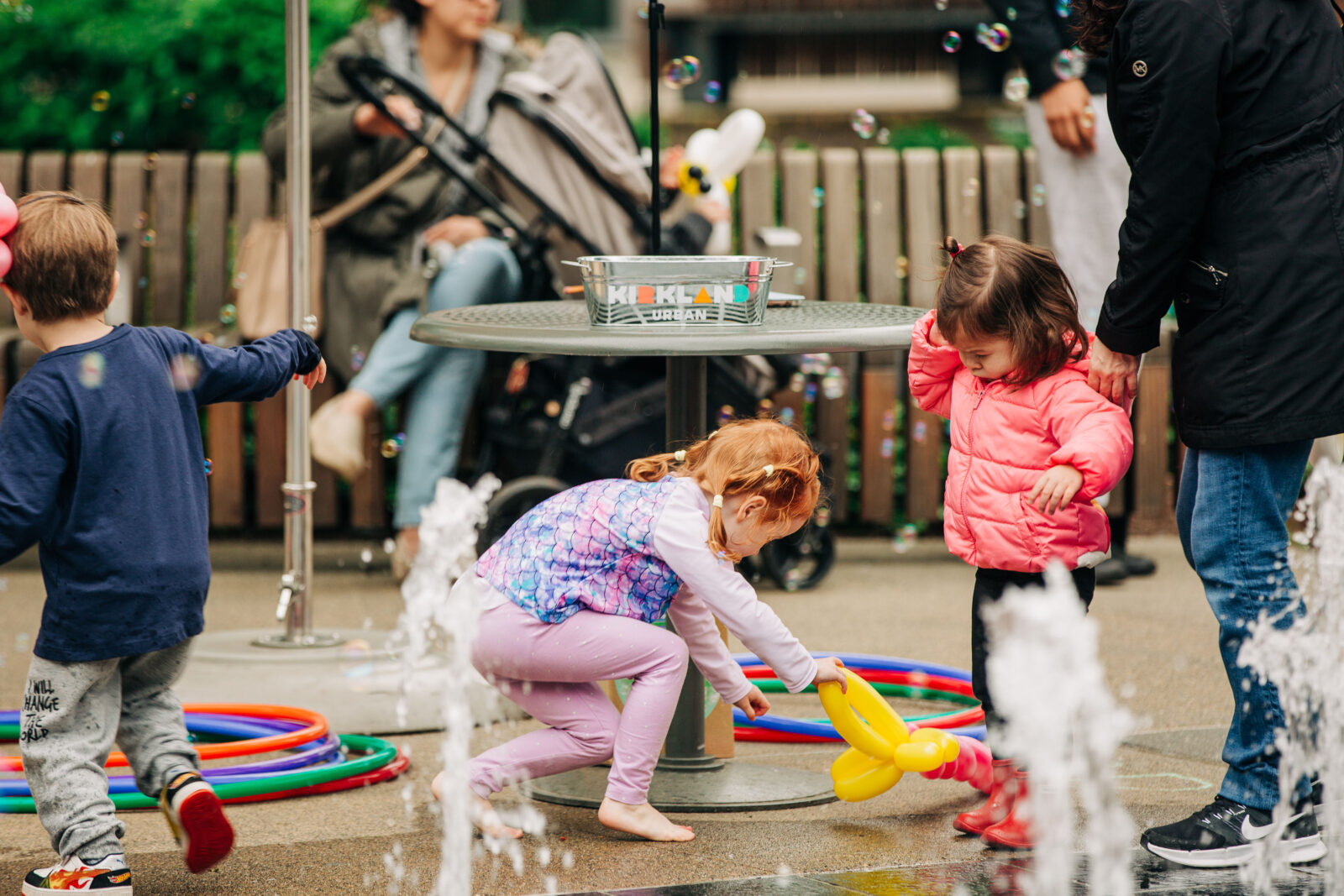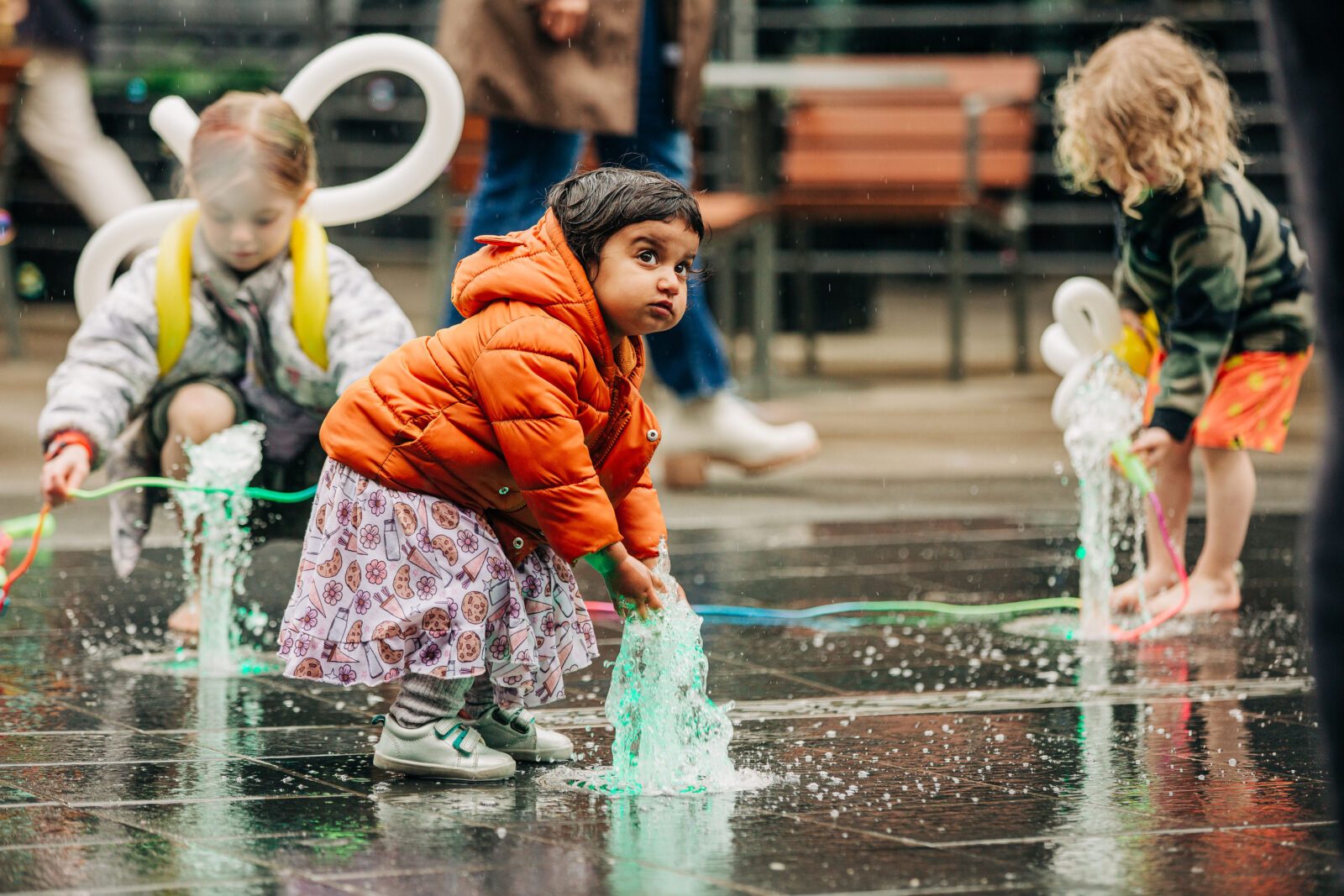Kirkland Urban Was Buzzing With Fun During Bee Day Splash!
Perched atop the Kirkland Urban rooftop away from the crowds that stroll the plaza are 33,000 tiny residents that most people will never know about: bees! For the last 3 years, Kirkland Urban has worked with our beekeeping partner, Alvéole, to help provide a safe and comfortable home for these tiny creatures to thrive. And this May, we wanted to throw a celebration in their honor! Check out our event recap from the Bee Day Splash as well as a Q+A with the Alvéole team to learn more about our beautiful Kirkland Urban bees!
The “Bee Day Splash” was more than just a kickoff to summer – it was a fun day that brought awareness to the importance of bees in our world. We are grateful for Alvéole’s continued partnership in helping us with our rooftop bees, as well as all the vendors that helped bring the event to life.
All were welcomed to the Kirkland Urban plaza on Thursday, May 15. From photo opps to games to bubbles and free bites, the day had something to offer for everyone!
Kids were able to make playful bee-related crafts and giveaways to take home and remember the day.
Participants of all ages were able to get up-close and hands-on with educational demonstrations and activities to learn more about the important role bees play in our ecosystem.
And what would the Bee Day Splash be without some time at our Splash Pad? Just in case you missed the event, don’t worry! The Splash Pad is now open throughout the summer and we are pleased to offer free towel service.
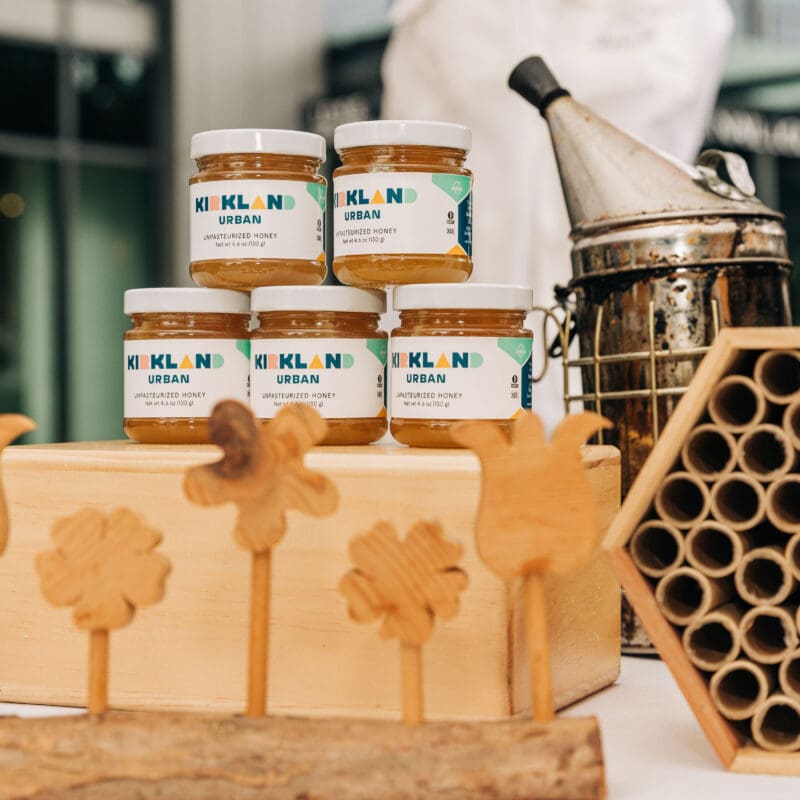
Guests were able to walk away with their own delicious treat – honey made with love by the Kirkland Urban bees – with a purchase of $35 or more at any Kirkland Urban retailer.
Q&A with Alvéole: Kirkland Urban’s Urban Beekeeping Partner
Q: Can you tell us more about Alvéole? What does the company do and what is your role?
Alvéole was founded in Montreal in 2013 and has since grown to operate in more than 70 cities across North America and Europe. The company focuses on urban beekeeping and environmental education, partnering with properties like Kirkland Urban to bring bees — and awareness — into city spaces. Our role includes hive maintenance, data tracking, community events, and educational programming.
Q: How did your organization get connected with Kirkland Urban (KU)?
We partnered with Kirkland Urban through JLL, their property management company. Alvéole maintains hives at several JLL properties in the region, and Kirkland Urban has been a part of that network for about three years.
Q: Tell us more about the hives at KU. How many are there, and how active are they?
There are two hives located on the roof of the North Building. Depending on the season, each hive houses between 15,000 and over 60,000 bees. The queens start laying eggs around February or March, and the colonies grow rapidly into the summer months. By fall, activity begins to taper off, and the hives become dormant during winter.
Q: What makes the Kirkland Urban hives unique?
Each hive reflects the local ecosystem. The bees forage within a 3–5-mile radius, creating hive products like honey and wax that are unique to this area. Even the genetics of new queens are shaped by the health and diversity of nearby pollinator populations, as they mate with local drones.
Q: When are the hives most and least active?
The busiest months for the hives are June and July, while activity slows significantly from November through February.
Q: How many hives does Alvéole manage in the local area?
We currently manage between 120 and 130 hives in the region, including those on private properties and in community yards.
Q: How can members of the community learn more about the bees at KU?
The best resource is the Kirkland Urban MyHive page, which features real-time updates about the hives, educational resources, and details from events like Bee Day.
Q: Are there any common misconceptions about bees you’d like to clear up?
Absolutely. First, honey bees often get the spotlight, but native bees and pollinators are facing the most serious population declines. Second, not all black-and-yellow insects are bees — wasps and hornets are usually responsible for stings. Finally, diverse ecosystems are crucial. A wide variety of plants and natural habitats supports healthier pollinator populations.
Q: What can individuals do to help protect pollinators?
There are several simple steps people can take:
- Delay spring yard work by a month or more to protect nesting sites of native bees.
- Be cautious with pesticides — many are non-selective and harm beneficial insects.
- Plant native, flowering species in underused areas like ditches, grassy strips, and borders to create pollinator habitats.






